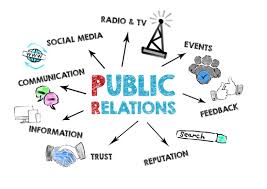Unveiling the Secrets Behind Your Brand’s Success
The Power of Building a Strong Brand
In today’s competitive business landscape, building a strong brand is more important than ever. A brand is not just a logo or a name; it is the essence of what your business stands for and how it is perceived by your customers.
A strong brand can differentiate your business from competitors, build trust with customers, and create loyalty that leads to repeat business and referrals. It is the foundation on which you can build a successful and sustainable business.
When you invest in building a strong brand, you are investing in the long-term success of your business. A well-defined brand strategy can help you attract the right customers, charge premium prices for your products or services, and create a lasting impact in the minds of consumers.
Consistency is key when it comes to building a strong brand. Your brand should be reflected in every aspect of your business – from your logo and website to your customer service and marketing materials. By maintaining a consistent brand image, you can reinforce the values and qualities that set your business apart.
Building a strong brand also requires understanding your target audience and communicating with them effectively. By knowing what appeals to your customers and how to connect with them on an emotional level, you can create meaningful relationships that go beyond transactional interactions.
Ultimately, a strong brand is an invaluable asset that can drive growth, increase market share, and secure the future success of your business. By investing time and resources into building and nurturing your brand, you are laying the groundwork for sustained success in an increasingly competitive marketplace.
Five Essential Tips for Strengthening Your Brand Identity and Loyalty
- Maintain a consistent brand image across all platforms and communication channels.
- Understand your target audience to tailor your branding efforts effectively.
- Invest in high-quality design elements that reflect your brand’s identity.
- Create a unique selling proposition that sets your brand apart from competitors.
- Engage with your customers regularly to build brand loyalty and trust.
Maintain a consistent brand image across all platforms and communication channels.
Maintaining a consistent brand image across all platforms and communication channels is crucial for building trust and recognition among your target audience. By ensuring that your brand’s visual identity, messaging, and values remain consistent whether on social media, websites, print materials, or in-person interactions, you create a cohesive and memorable brand experience. Consistency reinforces your brand’s authenticity and reliability, making it easier for customers to connect with and remember your brand in a crowded marketplace.
Understand your target audience to tailor your branding efforts effectively.
Understanding your target audience is crucial for tailoring your branding efforts effectively. By gaining insights into the demographics, preferences, and behaviours of your audience, you can create a brand identity that resonates with them on a deeper level. This knowledge allows you to craft messaging, visuals, and experiences that speak directly to the needs and desires of your target customers, building a strong connection and driving loyalty towards your brand. By aligning your branding strategies with the interests and values of your audience, you can position your brand for success in a competitive market landscape.
Invest in high-quality design elements that reflect your brand’s identity.
Investing in high-quality design elements that reflect your brand’s identity is crucial for creating a strong and memorable brand presence. From your logo and website to packaging and marketing materials, every design element should convey the essence of your brand and resonate with your target audience. By ensuring consistency in design across all touchpoints, you can build brand recognition, establish credibility, and differentiate your business from competitors. High-quality design not only enhances the visual appeal of your brand but also communicates professionalism and attention to detail, reinforcing trust and loyalty among customers.
Create a unique selling proposition that sets your brand apart from competitors.
To stand out in a crowded marketplace, it is crucial to create a unique selling proposition that distinguishes your brand from competitors. By clearly defining what makes your products or services special and differentiating them from others in the industry, you can attract the attention of potential customers and build a loyal following. A strong unique selling proposition not only communicates the value of your brand but also resonates with consumers, helping to establish a lasting impression that sets your brand apart in the minds of customers.
Engage with your customers regularly to build brand loyalty and trust.
Regularly engaging with your customers is a crucial strategy in building brand loyalty and trust. By maintaining open lines of communication, seeking feedback, and providing valuable interactions, you can create a strong bond with your audience. This engagement not only helps you understand your customers’ needs and preferences better but also shows that you value their opinions and are committed to meeting their expectations. Building a loyal customer base through consistent engagement can lead to increased trust in your brand, higher customer retention rates, and positive word-of-mouth referrals that contribute to long-term business success.





